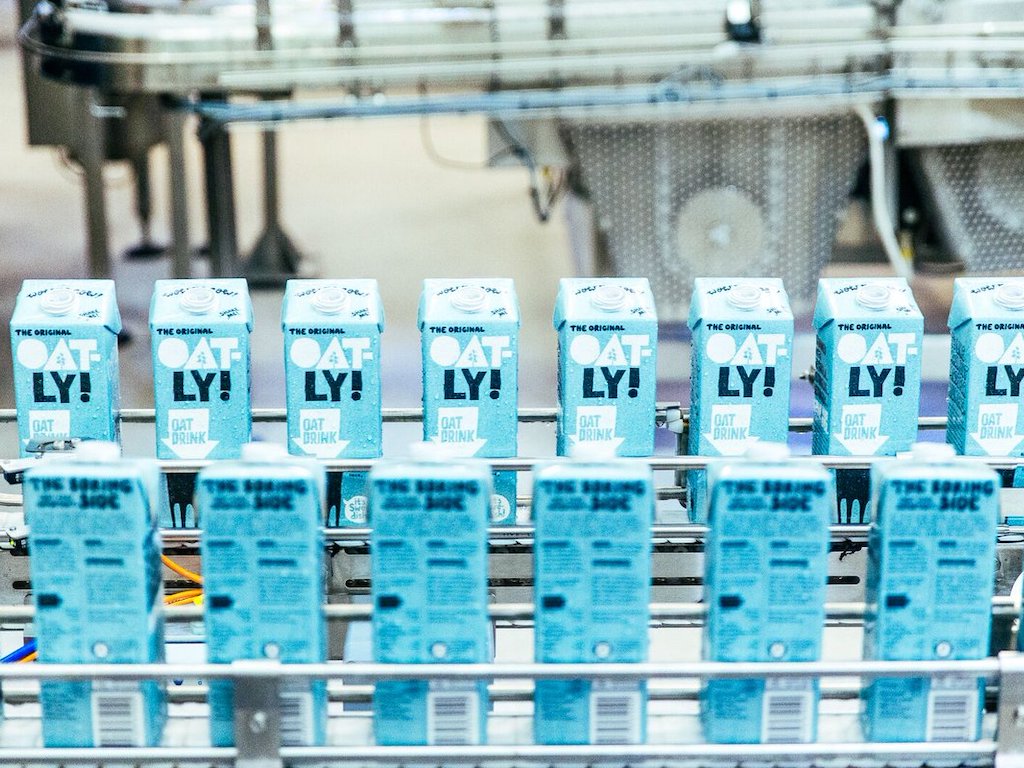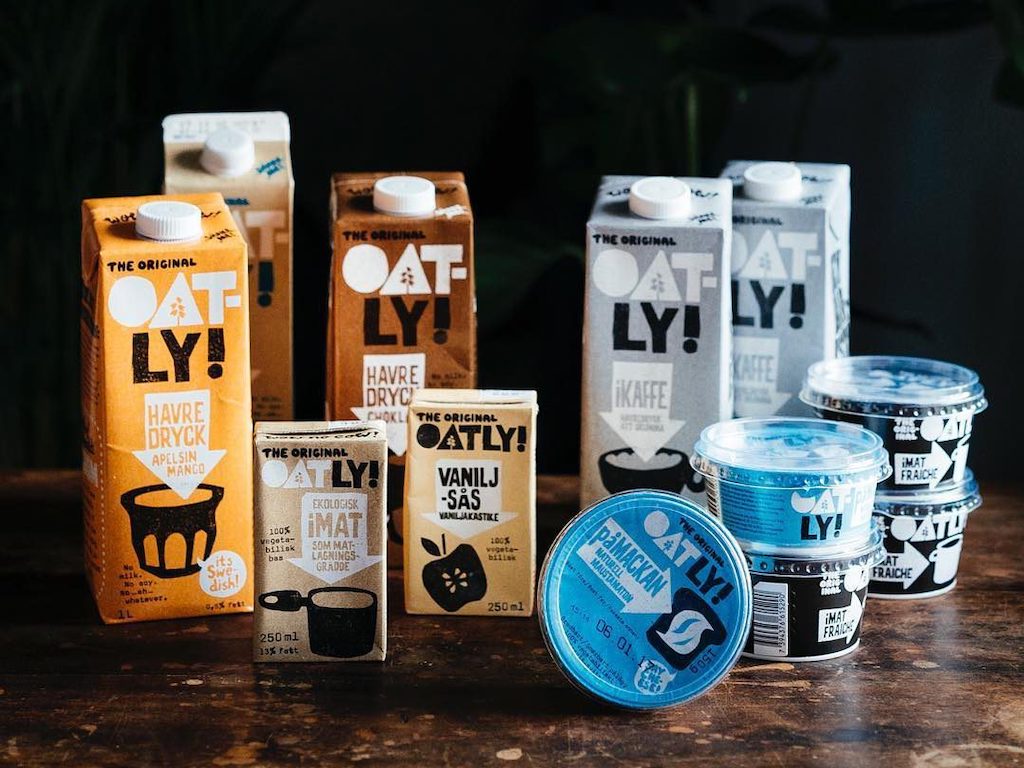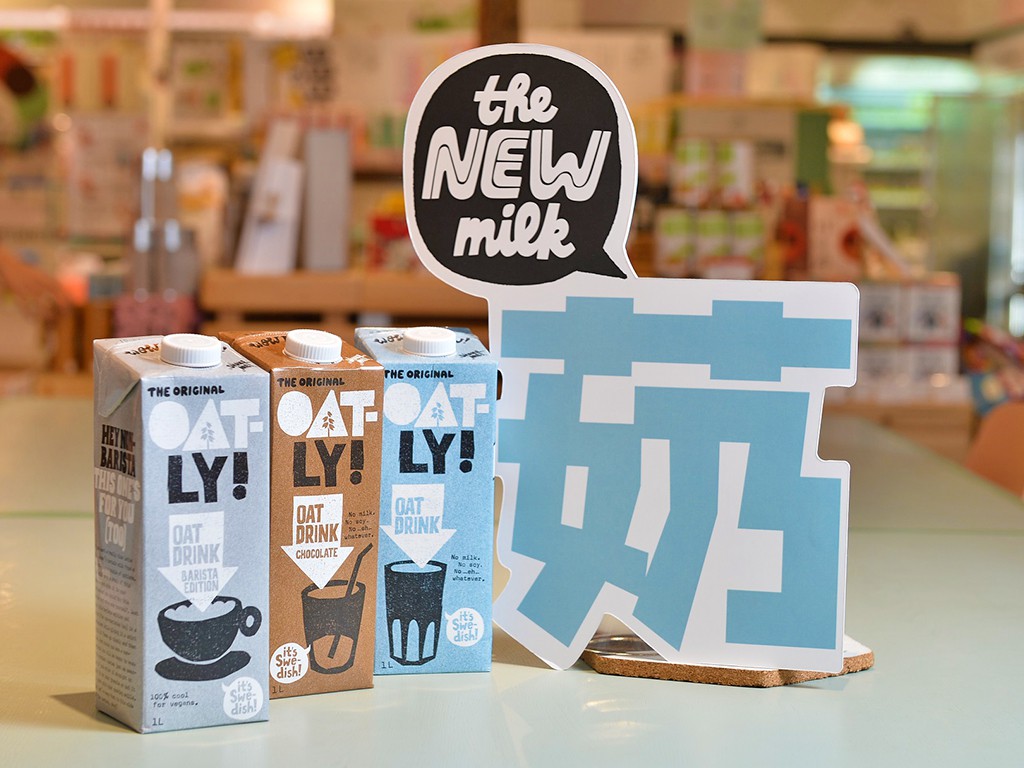4 Mins Read
Swedish oat milk pioneer Oatly’s stock began trading on the Nasdaq today under the ticker symbol OTLY, opening at US$22.10 per share, a 30% pop from its initial public offering price of US$17 per share, giving the company a valuation of over US$ 13.1 billion. In a social media statement released when U.S. markets opened, the alt milk category creator said that the listing would “allow us to build the factories we need so there’s enough Oatly to go around and continue to create amazing new plant-based products that help us turn the corner on climate change and keep this planet available for those of us yet to be born”.
Oatly has debuted on the Nasdaq stock exchange just before noon Eastern U.S. time today (May 20) with an opening share price of US$22.10, 30% above the US$17 listed price, which would have given the Swedish plant-based milk maker a valuation of around US$10 billion.
The Blackstone-backed company had originally set its ambitions to raise between US$1.27 billion and US$1.43 billion by pricing its 84.4 million American Depositary Shares between US$15 to US$17 in its regulatory filing earlier this month. It made official its intentions to pursue an IPO earlier in February this year, but released few details on the terms of the planned sale at the time. Speaking to Forbes, CEO Toni Petersson, who has led the company since 2012, said they would “use the proceeds to expand our production capacity.”
Deciding on US$17 a share at the top of its indicated range was seen as a positive sign for the company, given that a number of IPOs have been pulled this week due to market instability, including mortgage insurance firm Enact Holdings, hearing care service Hear and tech company Zenvia.
Morgan Stanley, J.P.Morgan and Credit Suisse are among the lead underwriters for Oatly’s IPO.
Headquartered in Malmö, Sweden, the oat milk maker currently produces its famous vegan alternative in more than 20 global markets. Its IPO comes amid all-time high sales for the overall plant-based food retail market – U.S. sales topped US$7 billion for the first time in 2020 – and record growth within the alternative dairy segment.
Oat milk is one of the fastest-growing categories in the dairy-free space, with sales jumping an astounding 294% in enhanced retail channels and 345% in mainstream retailers over the past year, according to SPINS data.

Oatly, who largely dominates the oat milk category, reported that its own sales have risen triple-digits for three consecutive years, seeing US$421 million in revenue in 2020. Aside from oat milk, the brand also produces a number of oat-based dairy-free alternatives, including yoghurt, creamers, ready-made beverages and ice cream.
Last year, Oatly raised US$200 million in a star-studded investment round that saw the likes of celebrities like Oprah Winfrey and Natalie Portman back the firm. Starbucks’s Howard Schultz is also an investor. However, the upstart drew flack from some fans, who lodged a boycott against the brand receiving funds from the round’s lead investor Blackstone, the private equity linked to deforestation and whose CEO Steve Schwarzman is a major Donald Trump Super PAC donor.
It has since brushed off the controversy and instead made headlines for its Super Bowl commercial featuring its CEO Toni Petersson singing his original song “Wow, No Cow” in a field of oats, attracting the attention of millions of mass consumers and pushing the brand further into the mainstream.
The company’s biggest current shareholder is a joint venture between Verlinvest, the investment arm of the family behind brewing giant AB InBev, and Chinese state-owned China Resources, together owning 60%.

After the upcoming IPO, China Resources and Verlinvest will have the right to appoint three directors to the board of directors if each of their respective shareholdings remain above 15% – meaning their combined stake stays at 30% or more.
In the prospectus filed by Oatly in April, the firm said that it could seek a Hong Kong public listing after its U.S. IPO, in the case of any “material adverse effect” on its relationship with China Resources.
Like many food techs looking to cause disruption to the food system, Oatly has its eyes set on expanding in China, the world’s second largest economy, where the brand already bagged a nationwide oat milk partnership with Starbucks across 4,700 stores and over 11,000 point of sales in the country.
While U.S. and Europe account for the largest chunk of their sales, the company is doubling down its presence across Asia where it believes it will see the strongest growth-2020 year-on-year sales in the region increased 5x. To that end, Oatly has forged a partnership with Singapore beverage giant Yeo’s, marking the first time Oatly’s products have been manufactured outside of the West, and has rolled out across eight of Starbucks’ key markets in the Asia-Pacific region.
Lead image courtesy of Oatly
.




